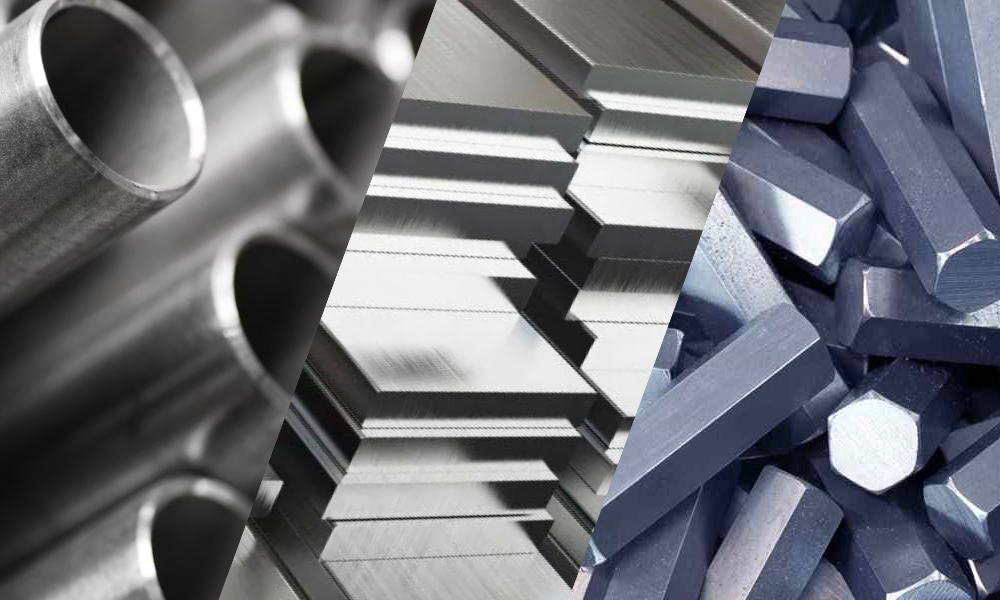The world of metals is vast, with each element and alloy possessing unique properties that make them valuable for different industries. Among them, strength is one of the most admired attributes, especially when it comes to construction, aerospace, defense, and heavy machinery. The search for the strongest materials has driven innovations for centuries, and today we can rank the top 10 strongest metals based on tensile strength, compressive strength, hardness, and resistance to wear. This article explores these incredible materials, from titanium to tungsten, and examines why they dominate in strength and durability.
What Defines Metal Strength
Before diving into the list, it is important to clarify what makes a metal “strong.” Metal strength can be measured in various ways, including:
- Tensile strength: The ability to withstand being pulled apart.
- Compressive strength: The ability to resist being crushed.
- Yield strength: The stress at which a metal begins to deform permanently.
- Hardness: Resistance to scratches, dents, or surface deformation.
Different metals may excel in one property while being average in another. The ranking of the top 10 strongest metals considers these qualities collectively.
Titanium – Lightweight Yet Mighty
Titanium is widely celebrated for its outstanding balance between strength and weight. While not the hardest metal, it offers exceptional tensile strength combined with being about 45% lighter than steel. This makes titanium invaluable in aerospace, medical implants, and high-performance vehicles. Titanium’s resistance to corrosion, even in seawater, adds to its reputation. It is strong without being excessively heavy, which is why industries that require performance without bulk rely heavily on titanium.
Tungsten – The Champion of Hardness
Tungsten stands as one of the strongest natural metals known to science. It has the highest melting point of all pure metals and incredible tensile strength. Tungsten is extremely dense and durable, making it indispensable in defense applications, high-temperature machinery, and even in light bulb filaments. Its ability to retain hardness at very high temperatures makes it unique. However, due to its brittleness in pure form, it is often alloyed with other metals to enhance usability.
Chromium – The Protective Powerhouse
Chromium is not just about its shiny finish seen in decorative plating; it is also incredibly strong and resistant to corrosion. It has impressive hardness and is often used in stainless steel and other alloys to provide strength and long-lasting durability. Its ability to resist tarnishing and rust makes it a vital component in construction materials, industrial tools, and military equipment. Chromium alone may be brittle, but when alloyed, it plays a key role in creating some of the top 10 strongest metals.
Steel Alloys – Engineered Strength
Steel, in its many forms, remains a cornerstone in the strength category. While pure iron is relatively soft, combining it with carbon and other elements creates steel, which ranks among the top 10 strongest metals. Advanced alloys such as maraging steel or stainless steel possess remarkable toughness, ductility, and resistance to wear. These alloys are widely used in bridges, skyscrapers, vehicles, and tools. Engineers continuously improve steel formulations to achieve higher performance in both strength and flexibility.
Inconel – The High-Temperature Specialist
Inconel is a nickel-chromium superalloy designed to withstand extreme environments. It is not only strong but also maintains its mechanical integrity at very high temperatures, where other metals might weaken or deform. Inconel is commonly used in jet engines, gas turbines, and nuclear reactors. Its ability to resist oxidation and corrosion while enduring intense heat ensures its place among the top 10 strongest metals.
Osmium – The Ultra-Dense Contender
Osmium is one of the densest naturally occurring elements, with remarkable hardness and compressive strength. Though it is not widely used due to scarcity and brittleness, osmium is extraordinarily durable. Its applications are mostly limited to specialized fields, such as in fountain pen tips, electrical contacts, and high-wear applications. Osmium’s density and strength make it one of the most fascinating metals, though its rarity prevents it from being as widely adopted as titanium or steel.
Iridium – Resistance to Extreme Conditions
Iridium is another incredibly dense and corrosion-resistant metal. It can withstand extreme temperatures and is highly durable, even in harsh environments such as deep-sea or space applications. Iridium is also one of the most corrosion-resistant metals, often used in electrical contacts, medical devices, and scientific equipment. While not the hardest metal, its resistance to both heat and chemical attack earns it a place among the strongest.
Vanadium – The Alloy Enhancer
Vanadium is not widely known outside metallurgy circles, but it plays a key role in strengthening alloys. On its own, vanadium is tough, durable, and resistant to corrosion. When alloyed with steel, it dramatically increases hardness, tensile strength, and fatigue resistance. Vanadium steel is used in tools, automotive components, and aerospace parts. Its ability to enhance other metals ensures vanadium’s presence in the top 10 strongest metals.
Titanium Alloys – Advanced Engineering Materials
While pure titanium is already remarkable, titanium alloys take strength to another level. When combined with aluminum, vanadium, or other elements, these alloys provide outstanding mechanical properties. They are used in military armor, spacecraft, and advanced aircraft due to their excellent combination of strength, light weight, and heat resistance. Titanium alloys represent how science can push natural metals beyond their original capabilities.
Tungsten Alloys – Expanding Potential
Like titanium, tungsten becomes even more useful in alloyed form. Tungsten alloys are significantly tougher than pure tungsten, combining density and hardness with improved ductility. These alloys are crucial in applications such as armor-piercing ammunition, industrial cutting tools, and aerospace technology. Tungsten alloys ensure that the element’s incredible hardness and high-temperature resistance are usable in more practical ways, cementing their role in the top 10 strongest metals.
Conclusion
From titanium to tungsten, the top 10 strongest metals each bring unique strengths to modern industry. Whether it is titanium’s unmatched strength-to-weight ratio, tungsten’s incredible hardness, steel’s engineered durability, or iridium’s corrosion resistance, these metals demonstrate how diverse strength can be. Some are naturally strong, while others achieve greatness through alloys and advanced engineering. Collectively, they enable humanity to build skyscrapers, conquer space, explore the deep seas, and defend nations. As research continues, new alloys and combinations will likely push the boundaries further, but these top 10 strongest metals will always remain the foundation of strength in science and industry.

